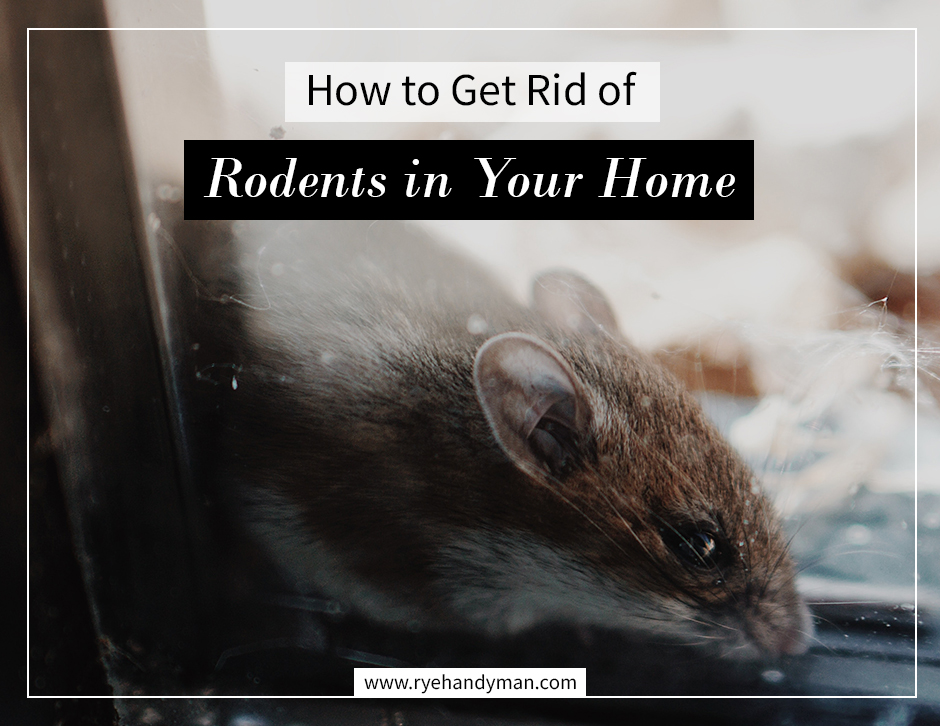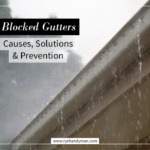
How to Get Rid of Rodents in Your Home

Rats and mice are always in search of warm, dry areas to settle – especially during cold and inclement weather – and unfortunately your home is the perfect little hideaway for them. The fact that they are mostly nocturnal means they’ll be difficult to spot and you may not even be aware you have a rodent problem. But what can they do to your home and how do you get rid of them?
Tell-tale signs of a rodent infestation:
Droppings – did you know rats can leave droppings around 40 times a day!
Smears – greasy marks where they have brushed up against walls and other surfaces.
Foot prints – rats can leave foot and tail marks in dusty less used areas of your home. To check if an infestation is still active put a substance such as flour or talc down and check for tracks the next day.
Damage – gnaw marks and shredded paper are common signs of rodent activity.
What do they do?
The most common is chewing and gnawing through pretty much anything. Food packets, furniture, cables, even walls – they can leave a trail of destruction as they gather materials to build nests. This can have serious consequences if they’ve chosen to take some electric cabling and leave exposed wires, which is a potential fire risk. Your sentimental items (antiques, heirlooms etc) could be damaged, and any damage to your property or insulation materials could create unforeseen maintenance costs.
Rodents will build a nest anywhere they consider themselves to be protected which could be anywhere from inside a wall to your car, inside appliances and ducting. This causes blockages or further damage and again can be a fire risk.
Rodents are known carriers for various diseases. By attacking food in your cupboards and leaving bodily waste (which is a way of indicating to other rodents the area is safe by scent marking) they are contaminating the remaining food and spreading germs everywhere. This can lead to health issues which would have easily been avoided.

How to get rid of them?
Seal any gaps – they can get through even the smallest of exterior gaps and holes so check for any signs and seal them up with wire wool, caulk or cement. Rats are even known to enter the home through damaged drains so check these regularly.
Declutter and clean – keep clutter to a minimum and make sure rubbish is kept closed away in bins.
Eliminate potential food sources – try to put open food in sealed containers not just left out on the side and make sure to clear up any spillages.
Own a cat – common sense dictates that owning a cat would most likely keep any rodents away, but this isn’t 100% effective! Some people don’t want to get a cat or their situation makes it extremely difficult. In that case, try placing a small amount of cat litter in the areas you’ve spotted evidence of the rodents. If you can get some from a friend with a cat, even better!
Create a bait station – trap rats or mice then release them away from your home. Different kinds of traps (including traditional) can be found in your local DIY shop.
Poison – this has long been a go-to solution when dealing with infestations but can create many more problems. Children and other domestic animals can find it and ingest it, as can other wildlife, and if outside it could be washed away by rain and potentially contaminate the water table. It’s now considered to be a method to avoid.
Know who to contact – it is always worth keeping a professional’s number on hand, just in case it gets out of control and you feel like you need the extra help and expertise. You can easily find a local pest control company using town directories or Google.

Handy Tip:
There are a few scents that rodents are not fond of, so using them in small enclosed areas should help keep them away.
Peppermint – soak cotton wool or fabric in essential oils and leave them in areas of rodent movement. You may need to top up regularly to ensure the scent doesn’t dissipate quickly.
Black pepper & cayenne pepper – sprinkling pepper in corners near holes or nests will help to move them on, but make sure the pepper doesn’t get blown away easily. If you’re using black peppercorns, cut them open to release the most scent.
Bleach – cleaning every surface you can with bleach works in two ways; it can kill the germs spread by droppings, urine and dirty paws, and can prevent the rodents from returning to that spot as they don’t like the distinctive smell.



